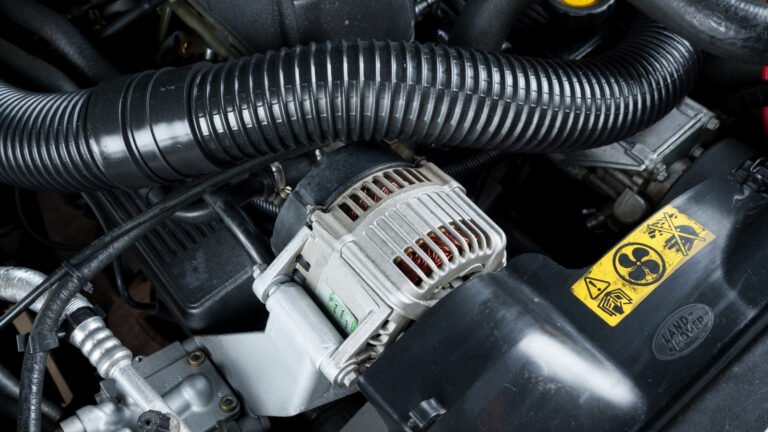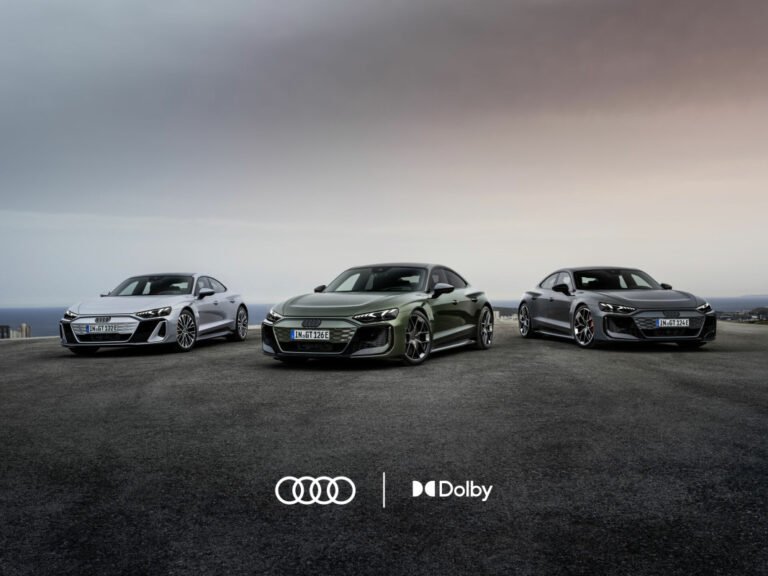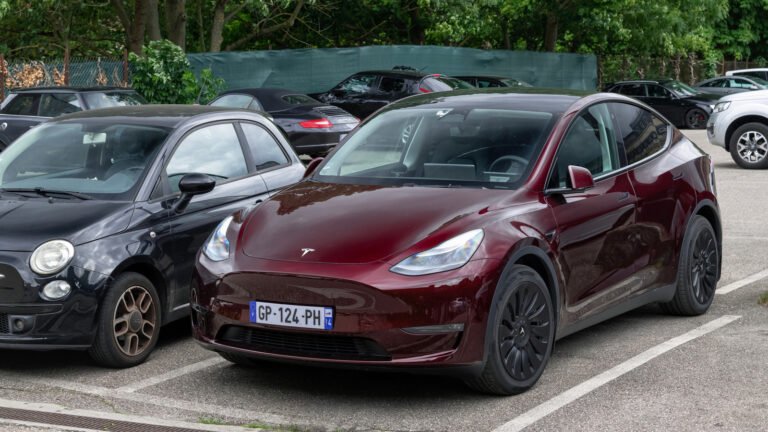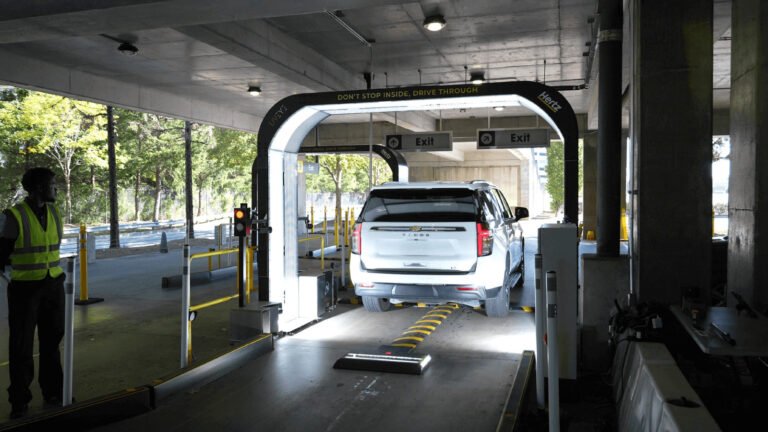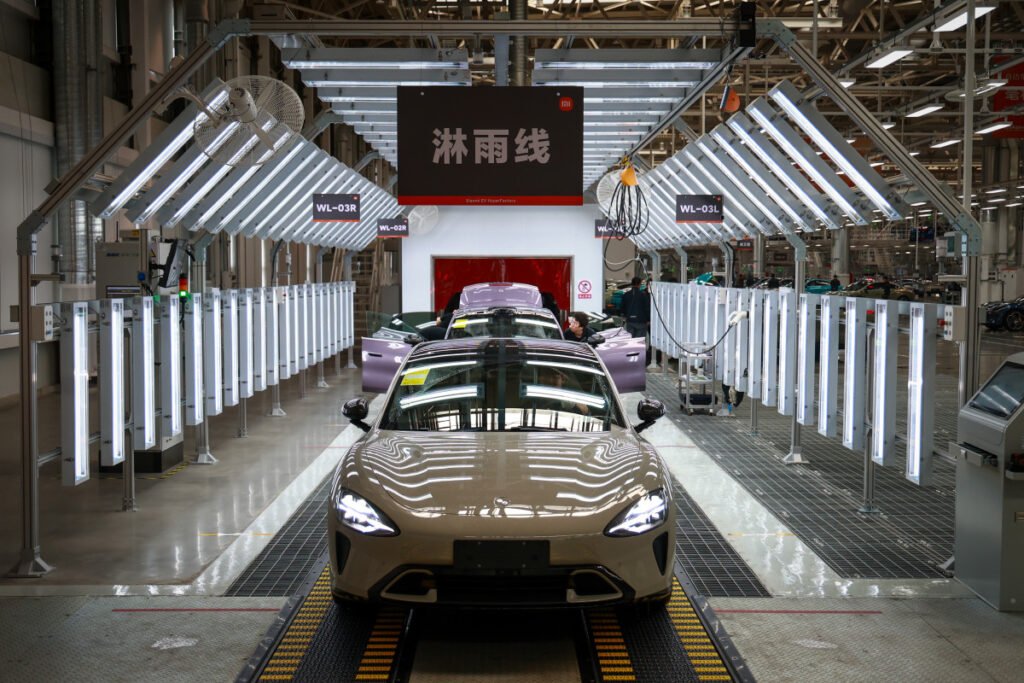
A different kind of showcase
In China’s capital city, Beijing, a long list of historical sites and other attractions attracts visitors from home and abroad every year, including the Forbidden City, the Olympic Stadium known as the Bird’s Nest, and even a section of the Great Wall of China.
With a history that stretches back to 1045 BC, Beijing is a city that blends both the rich history of China’s past with the wonders of a new age. Today, alongside other major Chinese cities such as Shenzhen and Shanghai, it thrives as a dynamic economic hub, and sites that showcase the country’s latest technological and industrial dominance have become the focus of some curious visitors.
Getty Images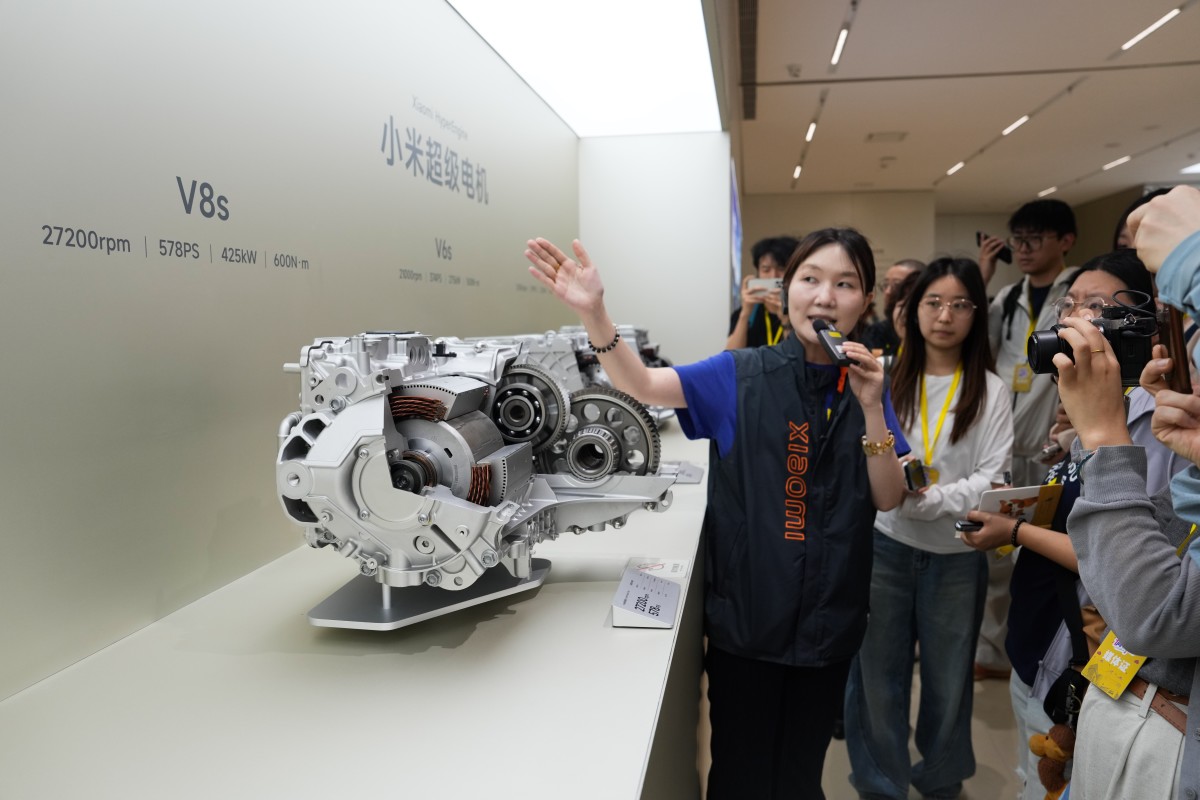
Chinese EV factories are the new science museum
According to a new report published by Wired magazine, the latest must-see attraction in Beijing is not something old, but something relatively new: its electric vehicle (EV) factories. According to the tech authority, tens of thousands of people have flooded online ticket lotteries each month for a chance to walk through the factory floors of the country’s most advanced EV makers like Xiaomi and Nio. It’s not just car lovers lining up, either. Families, tech-obsessed geeks, and even students treat these factory visits as if they’re a stroll through a museum or gallery.
Consumer electronics giant turned EV powerhouse Xiaomi was one of the first to open its doors to the public, kicking off the craze by offering tours of its Beijing factory to those who wanted to see inside. Very quickly, the demand to see inside the factory where the Xiaomi SU7 is made reached Wonka-levels.
When the company started offering tours, Xiaomi’s online lottery system gave the ‘golden tickets’ to just 60 people per month. However, demand has since exploded, and Xiaomi expanded the program. It aims to accommodate more than 1,100 visitors in July, with one tour each weekday and six on most weekends. According to data from the Xiaomi app, more than 27,000 people applied for July slots on the first night after registration opened.
Getty Images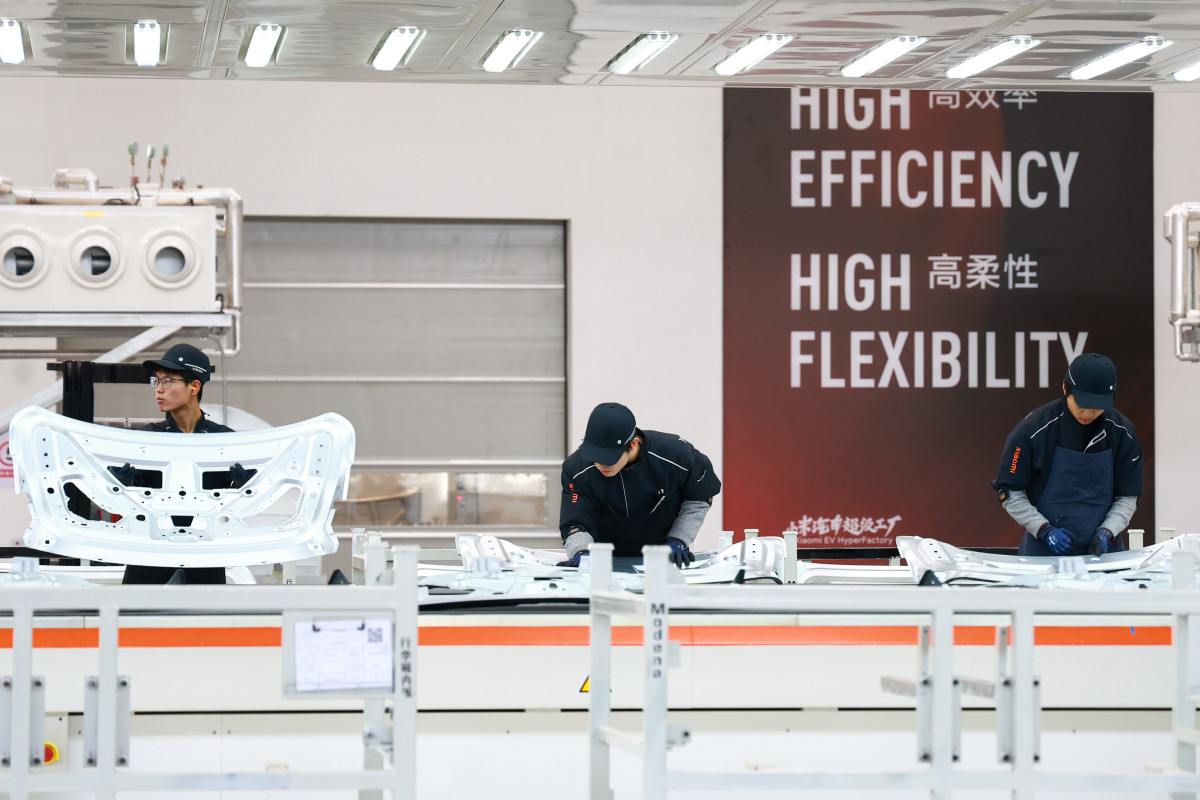
The future of automaking, now
These tours offer a rare glimpse into what the future of ultra-automated manufacturing will look like. Xiaomi’s plant boasts a 91% automation rate, with some lines being entirely run by robots. Visitors are shuttled around the factory, where they observe robotic arms moving with machine-like precision, lifting and assembling components without a human in sight.
“The factory is huge, with only a handful of workers. As I stood there watching, it was all robotic arms doing the work. The robots were all running preset programs—picking up parts from one place and delivering them to another, all in a very orderly manner,” Yuanyuan, a Beijing resident who took her 13-year-old daughter on the Xiaomi tour in May, told Wired.

VCG/VCG via Getty Images
However, Xiaomi’s factory isn’t just about watching robots; the experience combines the exhibits of a science museum, a factory tour, and ends with amusement park-esque thrills. Before touring one of three active production lines out of six total to gawk at the workers and robots, guests stroll through a tech-filled exhibit hall. At the end, thrill-seekers hop into a Xiaomi SU7 electric sedan and experience a test ride with a professional driver who is glad to showcase the car’s seat-pinning acceleration.
Xiaomi isn’t the only company capitalizing on this trend. Chinese electric vehicle giant Nio recently opened its partially automated factory in Hefei and welcomed over 130,000 visitors in 2024. To take a tour, prospective visitors must register through the Nio app and pay 1,000 “Nio points,” which is equivalent to $14. Users can either purchase these points or earn them for free by regularly engaging with the Nio app.
Final thoughts
Guided tours are nothing new for car manufacturing. Stateside, some facilities, including BMW’s Spartanburg, South Carolina plant, Honda facilities in Ohio, and GM’s Bowling Green, Kentucky plant, allow visitors to book tours. But in the same way that the factory tours mentioned in the West help connect with enthusiasts, Chinese EV factory tours help market the brand. Freya Zhang, a research analyst at Tech Buzz China, told Wired that by opening doors, EV makers allow the public to “experience the human side” of these brands.
I agree. It’s one thing to advertise, but I think a complimentary latte with foam shaped like BYD car models’ logos, or an affordable lunch and souvenirs at the Xiaomi factory, will etch a kind of feeling that will stick with potential buyers. BYD, Nio, and Xiaomi have even organized tours for elementary school students, which is a covert way to develop brand loyalty from the start. They’ll definitely remember that field trip.
However, these tours of EV manufacturing facilities, where industrial robots can outnumber people, can be a sobering reminder of reality for some visitors. After the tour, Yuanyuan, the mom who tried really hard to secure the coveted Xiaomi tour tickets, told Wired that her daughter said, “I need to study harder or robots will take all the jobs,” after they went.
